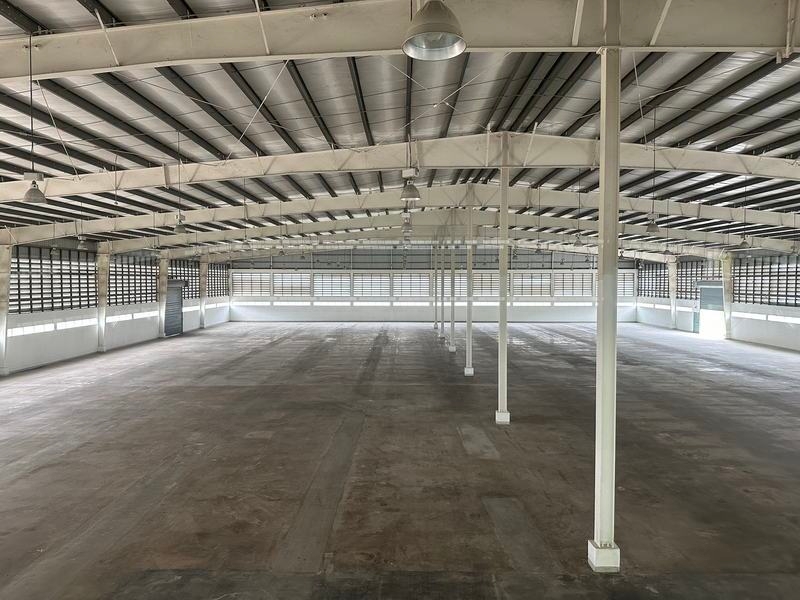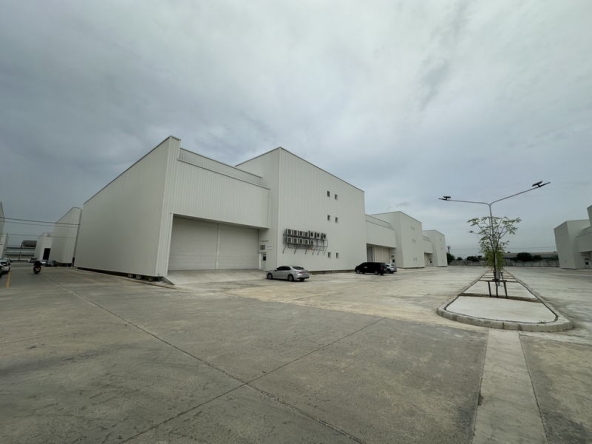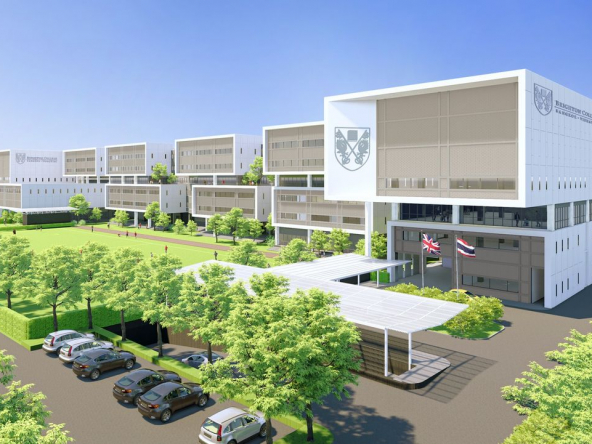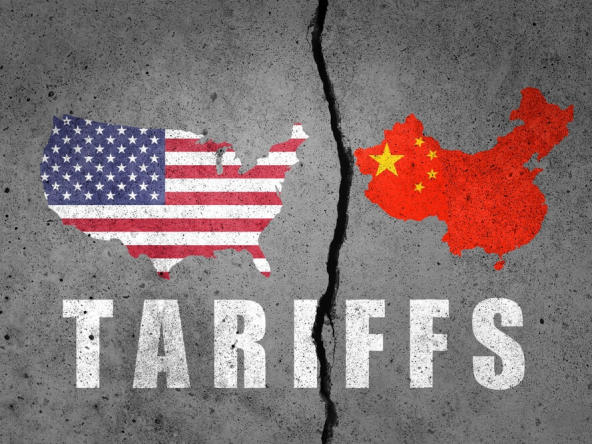As Thailand’s economy recovers and industries regain momentum post-pandemic, the factory rental market in Bangkok is experiencing a surge in demand. With its strategic location, well-developed infrastructure, and government incentives designed to attract foreign investment, Bangkok has become a prime destination for manufacturers and businesses looking to rent factory spaces.
However, navigating the intricacies of this market requires a keen understanding of available options, key considerations, and current trends. Whether you’re seeking a ready-to-move-in facility or a customizable space, here’s everything you need to know about the factory rental market in Bangkok.
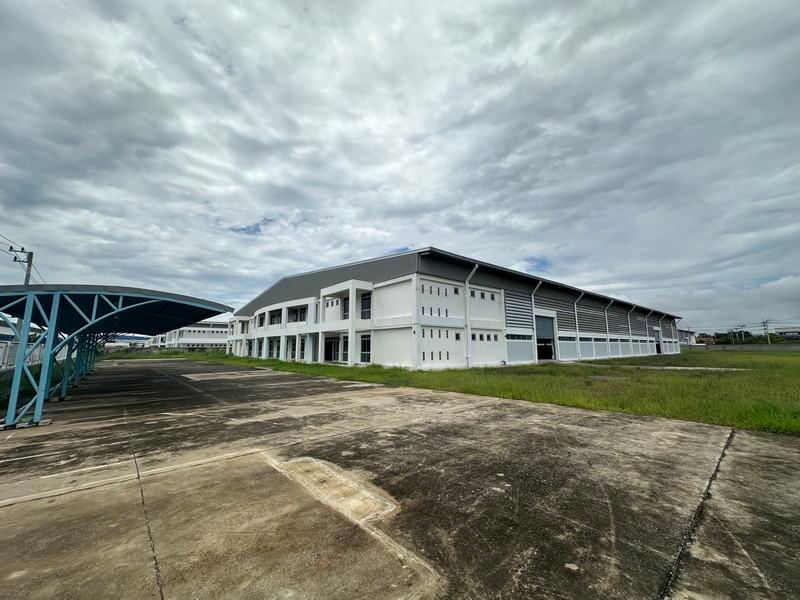
The Landscape of Factory Rentals in Bangkok
The factory rental market in Bangkok can be categorized into two main types: Ready-Built Factories (RBF) and Second-Hand Factories. Each category offers distinct advantages and challenges, making it important to carefully assess which option aligns best with your business needs.
1. Ready-Built Factories (RBF)
Ready-Built Factories, commonly referred to as RBFs, are factory spaces that have been constructed with the primary purpose of leasing. These factories are typically developed by well-known real estate developers such as WHA, Amata Summit, Frasers, and Prospect. They are designed to meet standard manufacturing requirements, which often include non-raised floors, floor load capacities of 2-3 tons, and ceiling heights between 7 to 9 meters.
Advantages of Ready-Built Factories:
Immediate Availability: One of the main benefits of RBFs is that they are move-in ready. Businesses can quickly set up operations without the delay of construction or major renovations.
Standardization: These factories adhere to standardized specifications, providing uniformity in terms of layout, structural design, and infrastructure. This ensures that your business has access to essential features like proper loading bays, electrical systems, and ventilation.
Ease of Leasing: RBFs are typically located within designated industrial zones, making the leasing process straightforward. The experienced developers who construct these factories are familiar with the needs of manufacturers and often provide support throughout the leasing process.
However, there is a downside to the RBF market in Bangkok. As demand grows, the availability of RBFs in prime industrial zones has diminished. Furthermore, developers have shifted focus to Build-to-Suit (BTS) projects, where factories are constructed specifically based on a tenant’s needs, or Pre-Lease Projects, which are not immediately available. As a result, securing a ready-built facility in a desirable location may require flexibility or foresight in planning.
2. Second-Hand Factories
In contrast to RBFs, Second-Hand Factories are previously owned and operated by manufacturers who no longer require the space. This sector presents a unique opportunity for businesses that value flexibility in location, customization potential, and cost savings.
Advantages of Second-Hand Factories:
Location Flexibility: Second-hand factories are not restricted to specific industrial zones, allowing businesses to choose locations closer to transportation hubs, suppliers, or key markets.
Customization: While older second-hand factories may require renovations or upgrades, they offer more room for customization. This makes them ideal for businesses with specialized infrastructure needs.
Cost Efficiency: In many cases, second-hand factories come at a lower price compared to RBFs, particularly if the property requires some modifications.
However, leasing a second-hand factory comes with its own set of challenges. Due diligence is essential when considering these properties. It’s important to assess the building’s structural integrity, zoning compliance, and ability to obtain necessary factory or operational licenses. Additionally, working with landlords who may lack experience in managing leased industrial properties can lead to complications during the rental period.
Factors to Consider When Renting a Factory in Bangkok
Whether you opt for a Ready-Built Factory or a Second-Hand Factory, several factors should guide your decision-making process:
1. Location
Bangkok’s industrial zones are strategically situated to offer proximity to major highways, ports, and airports. Depending on the nature of your business, access to transportation hubs can be crucial for both domestic logistics and international exports. Areas like the Eastern Economic Corridor (EEC), located near the city, are particularly attractive for manufacturers due to their infrastructure and investment incentives. However, if you’re considering a second-hand factory, you may find locations outside these traditional zones that offer more customization options.
2. Size and Layout
The size of the factory you choose should accommodate both your current operations and future expansion plans. RBFs typically range from 1,000 to 5,000 square meters, but larger spaces may be available through build-to-suit projects. Second-hand factories may offer greater flexibility in terms of layout, but you’ll need to ensure that the space can be adapted to meet your specific needs.
3. Licensing and Compliance
Thailand has strict regulations regarding industrial activities, and not all areas are zoned for factory operations. When considering a second-hand factory, it is crucial to verify that the property complies with zoning regulations and that you can obtain the necessary operating licenses. You’ll also want to ensure that the building itself is up to code and suitable for your intended use.
4. Infrastructure Requirements
Different types of manufacturing operations require specific infrastructure, such as electrical capacity, water supply, and waste disposal systems. RBFs are often equipped with standard infrastructure suitable for a wide range of manufacturing activities. However, if you have more specialized needs, you may need to invest in upgrades for second-hand properties.
5. Cost and Lease Terms
The cost of renting a factory in Bangkok can vary widely based on location, size, and type of property. RBFs generally offer transparent and standardized lease terms, while second-hand properties may have more room for negotiation. Consider not only the monthly rent but also any additional costs for maintenance, utilities, or renovations.
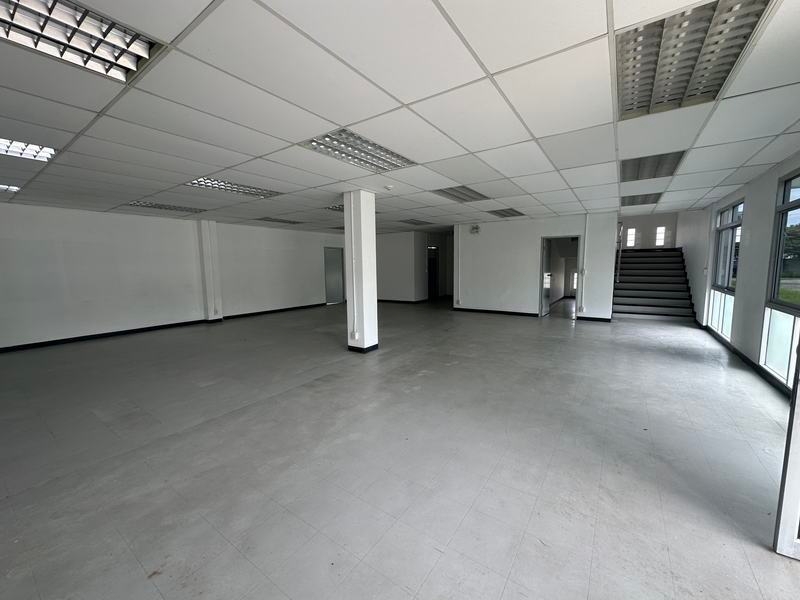
Current Trends and Market Outlook
The factory rental market in Bangkok is evolving, driven by a combination of economic recovery, government incentives, and increased foreign investment. Post-pandemic, many industries are seeing a resurgence, including electronics, automotive, and consumer goods manufacturing. As a result, demand for industrial spaces is at an all-time high.
Supply Constraints: The shift by developers toward build-to-suit projects has slowed the growth of available ready-built factories, making it more difficult for businesses to secure space in prime locations. This has led many companies to explore second-hand factories or even consider BTS options for long-term investments.
Government Incentives: The Thai government continues to offer attractive incentives for foreign manufacturers, including tax breaks and streamlined regulations. The Board of Investment (BOI) provides additional benefits to companies operating in certain industries or regions, making Thailand an attractive base for production and export activities.
Sustainability and Green Manufacturing: Increasingly, manufacturers are looking for facilities that align with green manufacturing standards. Bangkok’s industrial developers are beginning to incorporate sustainability features such as energy-efficient systems and eco-friendly designs into their new projects. This trend is likely to shape the future of factory development in the city.
Factory Rental Market in Bangkok: Final Thoughts
Navigating the factory rental market in Bangkok requires careful consideration of your business’s current and future needs. Whether you’re drawn to the convenience of Ready-Built Factories or the flexibility of Second-Hand Factories, understanding the market’s landscape is key to making the right choice.
By focusing on factors like location, infrastructure, and compliance, businesses can find the ideal factory space to support their growth in Bangkok’s booming industrial sector. With demand on the rise and supply tightening, now is the time to secure the perfect factory rental and capitalize on the opportunities Bangkok has to offer.
At Hero Realtor Bangkok, we have lots of experience finding factory rental space and premises for our customers. Please click here to see some factory rental options in Bangkok. If you need more info, you can email us by clicking here.


